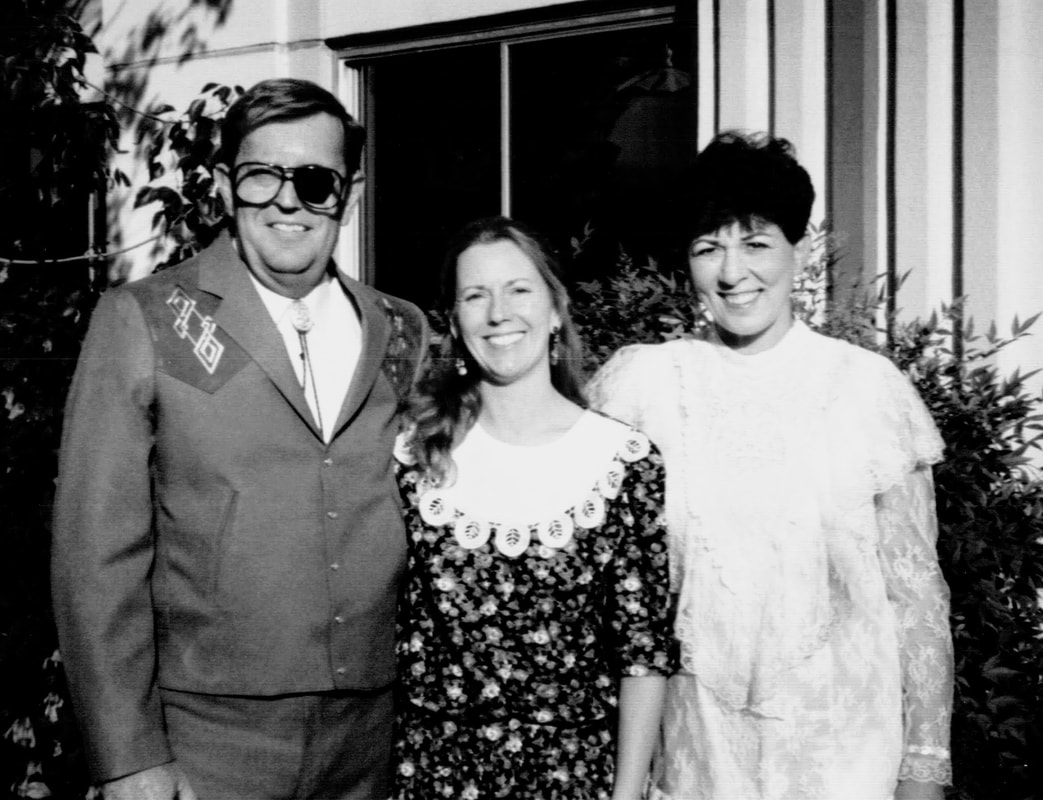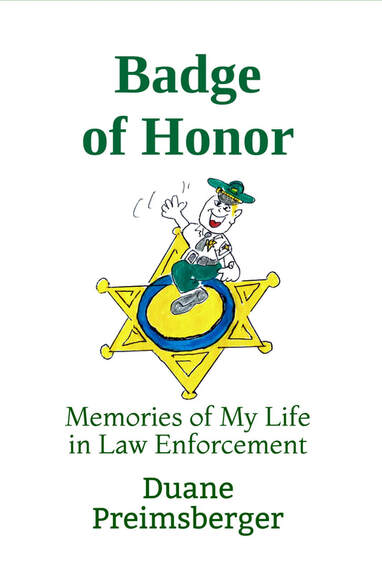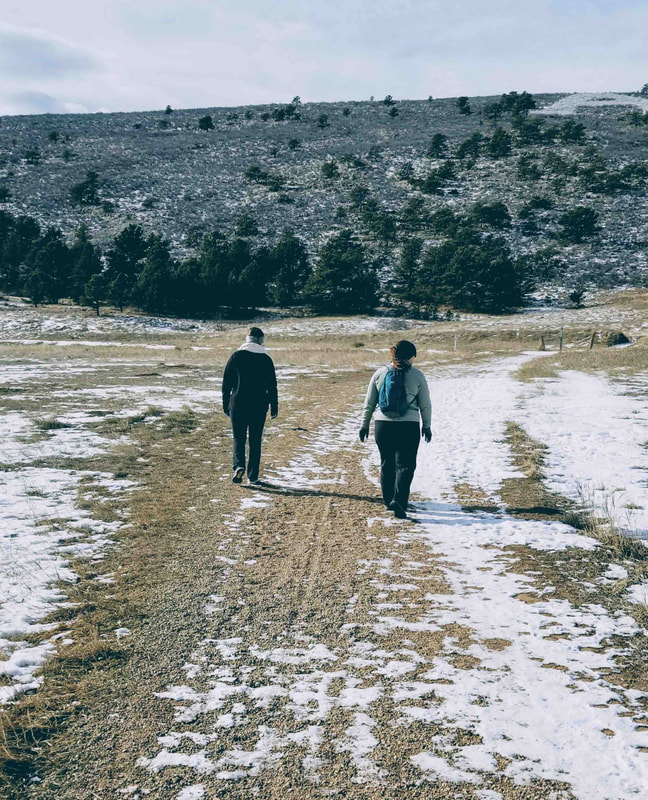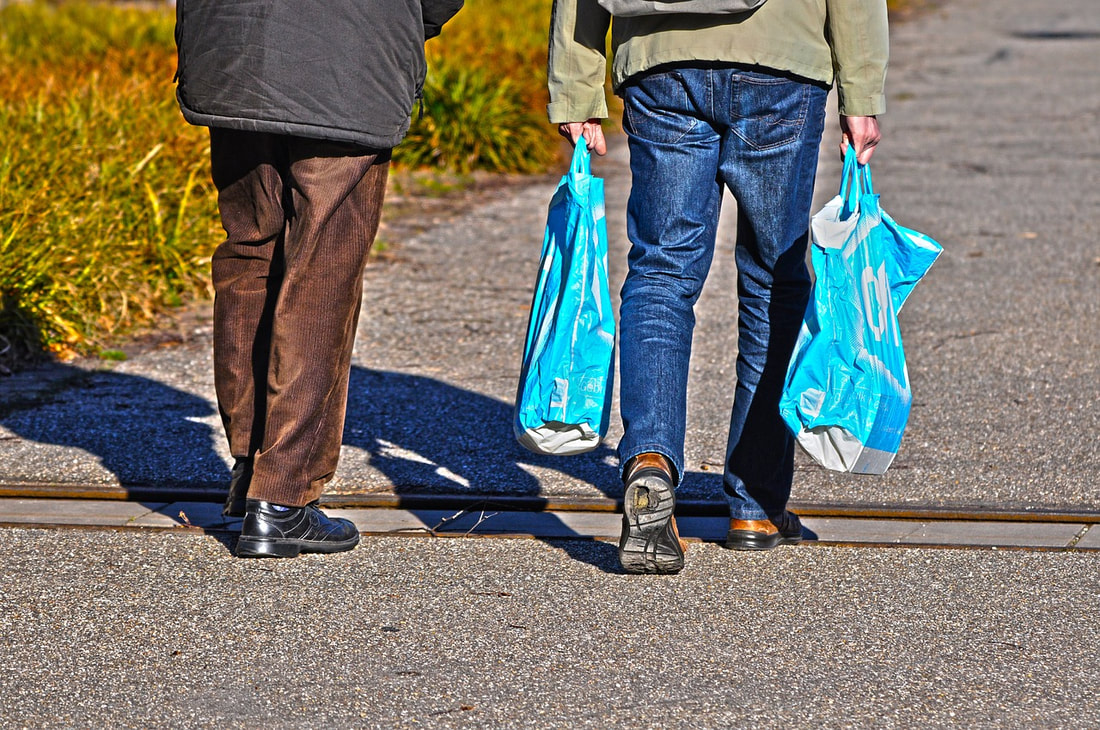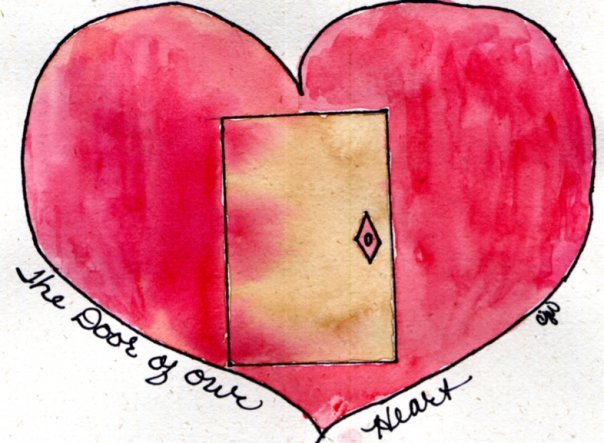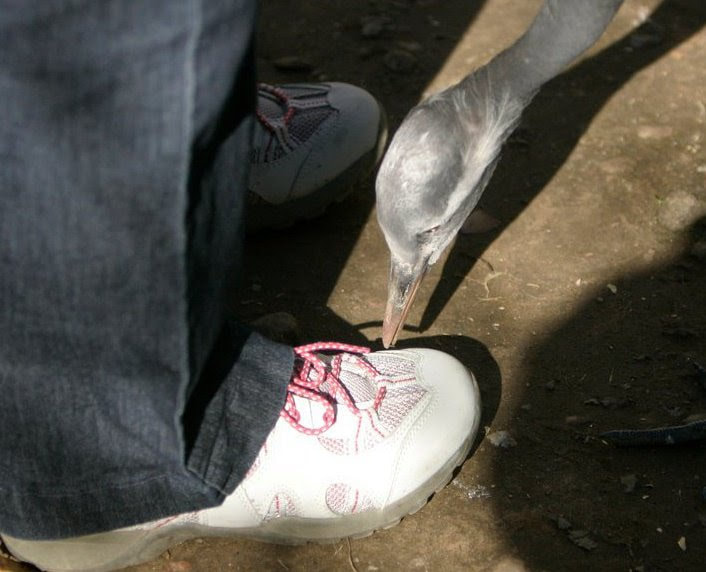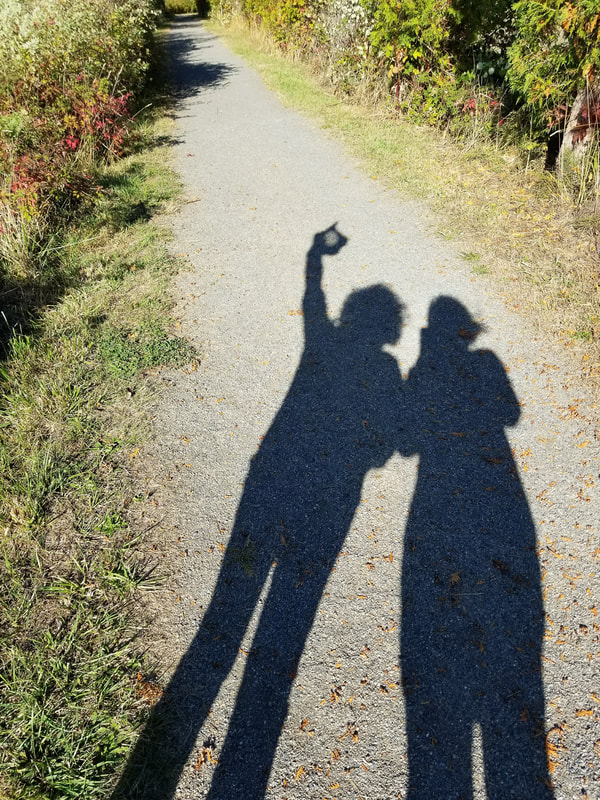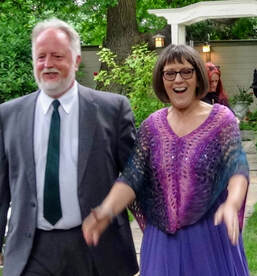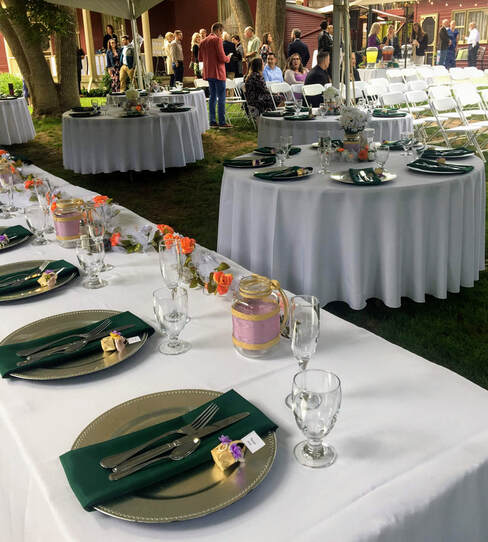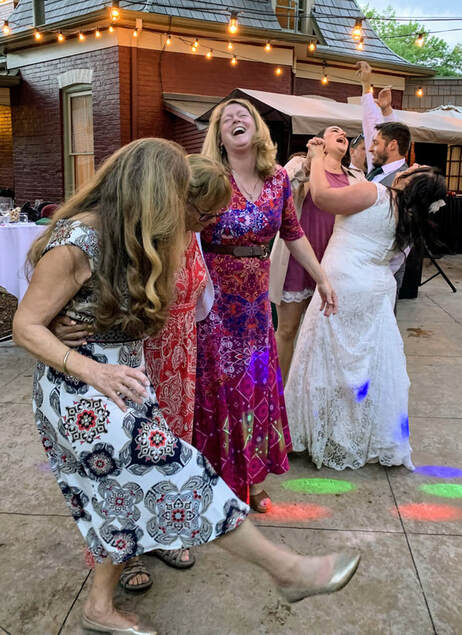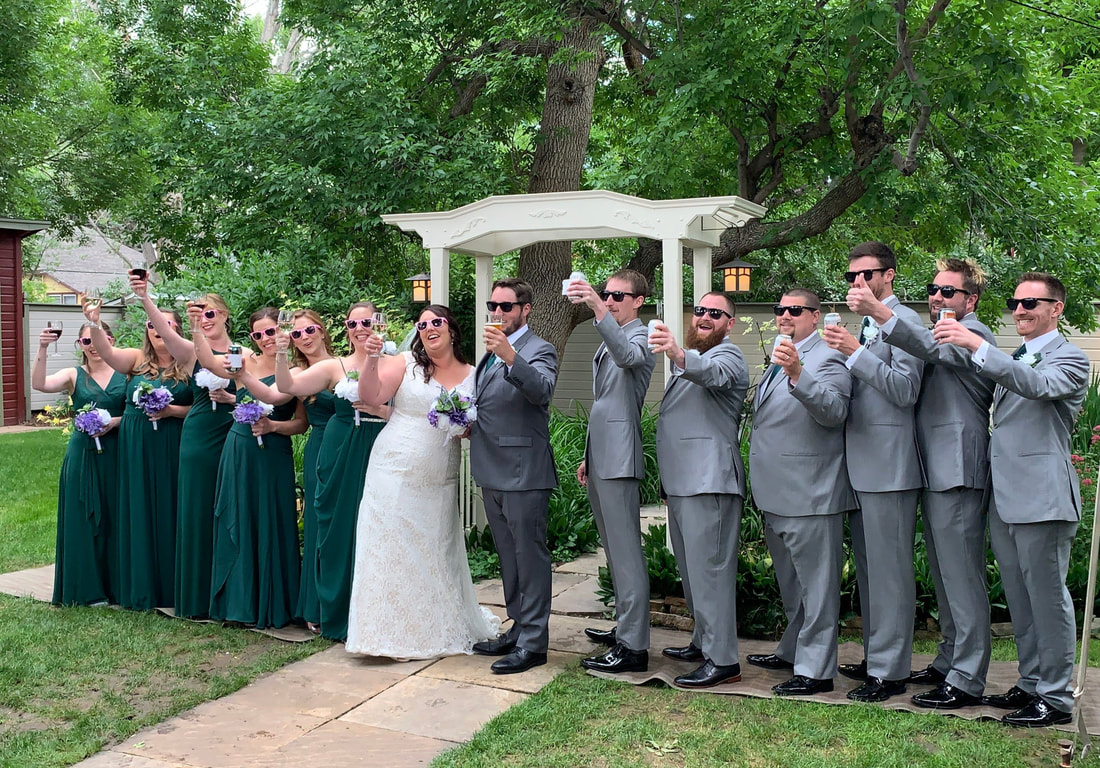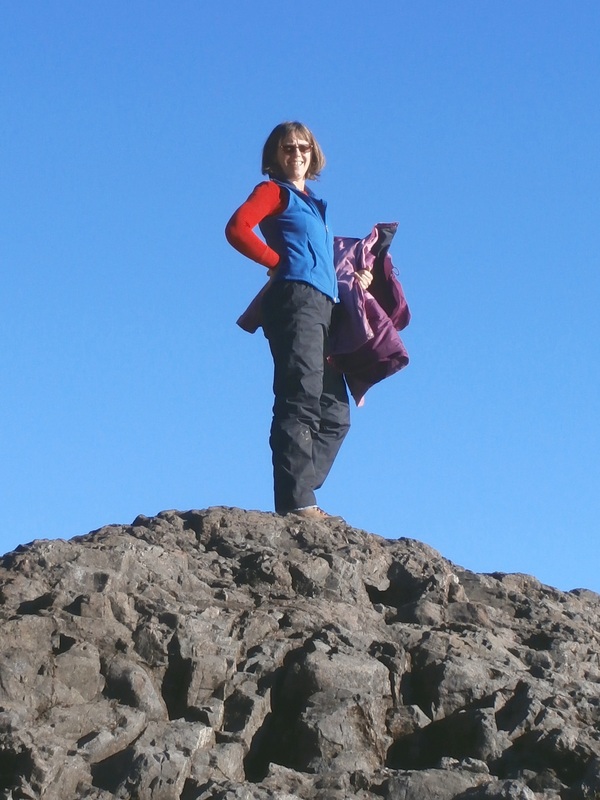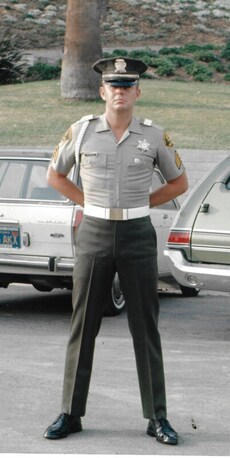 My father, Duane Preimsberger, wrote his memoir, Badge of Honor: Memories of My Life in Law Enforcement, to honor the courage, caring, commitment, and comedy of the men and women he served alongside during his 35 years with the Los Angeles County Sheriff’s Department (LASD). Now that his memoir is published, he plans to honor the City of Hope with the book’s proceeds. My dad began his career as a deputy with the LASD, the largest sheriff's department in the world, at the age of 20 in 1961, just a few months before I was born. In 1992, a few short years before his retirement as Assistant Sheriff in 1995, he was diagnosed with a rare sinus cancer and received treatment at the City of Hope, the Southern California research and treatment facility specializing in catastrophic illnesses. (In the photo above, taken at his retirement party, you can see that he lost an eye to the cancer.) In response, he and my stepmom, Judy, a deputy sheriff (now retired, too), formed a fundraising and blood donation chapter for the City of Hope. It was the first law enforcement chapter of its kind in the nation and has procured several million dollars and many gallons of blood for the City of Hope. Since then, both my parents have needed the City of Hope's care and cures for other cancers. They owe their lives to the City of Hope, and my father is donating all author royalties from the sale of Badge of Honor to them. In his colorful memoir, which I had the privilege of editing and publishing, my dad recounts delivering a baby, holding a dying drunk driver in his arms, patrolling the Watts Riots, interacting with East Los Angeles characters like Scooter Man and Scuba King, rappelling from helicopters, tracking a mass murderer, supervising detectives with monikers like Pumpkin Head and Turkey, coordinating athlete transportation for the 1984 Olympic Games in Los Angeles, introducing laser weapons training to the Sheriff’s Training Academy, and several volunteer activities to entertain and assist sick children—they were granting wishes long before the Make A Wish Foundation existed. A good friend, and fellow sheriff (may he rest in peace) drew a number of illustrations for the manuscript, one of which appears on the cover (below), and I've included photos from his career, including some provided by the LASD historian. My dad penned the occasional story about his work escapades when I was kid—roping an alligator was one—and began writing in earnest after his retirement. In addition to his stories he wrote news and profiles for dozens of newsletters, newspapers, and magazines including the FBI Journal. He has won multiple awards from the Erle Stanley Gardner Murder Mystery Writers Contest and is included in the anthology Felons, Flames, and Ambulance Rides. My parents have made their home in Temecula, CA, since retiring and have been active in the community serving on the board of the Hospice of the Valleys, City of Hope Patient and Family Care Advisory Council, Assistance League of Temecula Valley, Canine Support Team, and the Temecula Valley Museum where my dad also acted as a docent. I am grateful for his legacy of community service and proud to be part of birthing his memoir. Badge of Honor: Memories of My Life in Law Enforcement is available for purchase at Amazon.com.
1 Comment
A Reflection on Luke's Gospel, Chapter 10:1-11, 16-20 Years ago, my husband and I left our young children with his mother and went to see a Shakespeare Santa Cruz production of Othello. In an attempt to make the 400-year-old play more approachable, much of the cast was dressed in modern day military uniforms. But the language was just as Shakespeare wrote it, and I admit that although we recognized some of the words in the characters’ dialogue, we didn’t understand it. We felt frustrated and clueless, and when the lights came up at intermission, we left the theater and went to dinner. I’ve felt a bit like that as this Gospel reading percolated in my mind the past few weeks as I thought about what wisdom I could glean from it to share with congregation I attend. My ruminations raised so many questions that I found myself wishing, not for the first time, that I could ask Jesus for clarification, or put in a request to the Gospel writers for a new edition with contemporary situations, so I’d understand better the meaning behind his words. I’d like to know how Jesus would word his directives if he were sending the 70 followers out in the context in which we live now: a world of instant global communication where we can seemingly know everything about places we’ve never been and people we’ve never met. A world of letters, books, email, Facebook, Twitter and the Internet, where people can speak to each other across space and time without being physically present or even alive, since our words are preserved and archived in print and The Cloud. And I’d have questions about the specific details of his instructions: “Carry no purse, no bag.” No purse? No bag? I need my keys, driver’s license, phone, cash and credit cards. And a water bottle, lip balm, and a sweater are always a good idea, aren’t they? Shouldn’t my purse equip me with everything I need in order to serve God? “Greet no one on the road.” Does that still apply in a world of cars and planes? Is speaking to the stranger next to me on the train, plane, or bus taboo? Or is it the modern-day equivalent of staying with a stranger’s household? I hope these small encounters count, because otherwise Jesus’s directives seem impossible to me. “Whenever you enter a town and its people welcome you, eat what is set before you,” and “Remain in the same house, eating and drinking whatever they provide.” I certainly can’t imagine going door-to-door in a town of strangers hoping to become a houseguest forced to eat dairy and wheat, soy and eggs, and so many other foods that would make me sick in order to talk about God. And even back then, what if a host fed one of the 70 pork, which was against their religion? Was Jesus saying they should they eat it anyway? Can’t we buy our own groceries and still profess our love for God? And, what about being a resident in the towns where Jesus sends the 70 in a nation with motels at every Interstate exit and cities full of Airbnb’s? Am I supposed to open my door to two strangers and invite them to stay for days, doing their laundry and cooking for them while they wander around Union or Shelton looking for people willing to be healed? I have a hard enough time being polite to the Jehovah’s Witnesses I talk to through the screen door. But, back then, in a culture centered around hospitality, Jesus’s plan actually worked. The seventy returned with joy, saying, "Lord, in your name even the demons submit to us!" And he replied, "I watched Satan fall from heaven like a flash of lightning. See, I have given you authority to tread on snakes and scorpions, and over all the power of the enemy; and nothing will hurt you.” I wouldn’t even want to ask Jesus about demons, Satan, snakes, or scorpions or “the enemy.” I want to follow him in a world free from supernatural forces, venomous creatures, or enemies. Would Jesus tell me that today’s demons are addiction and violence and mental-illness? And the venomous creatures are corporate greed and systemic injustice and government corruption? And that the enemy is our own inability to recognize the humanity and belovedness in all people? If so, I could really use his help understanding how to gain authority over them. I’d want to talk to him about “Being a lamb among wolves.” Now that Christianity has become a dominant institution, those of us in the West who consider ourselves Christian are hardly in danger like the lambs Jesus’ followers were. Too often the church has acted like the wolves, preying upon the bodies of children and bilking money from the flock for personal gain, aligning itself with power, currying political favor, and promoting cultural conformity, rather than remaining rooted in Jesus’s teachings of aiding the poor, orphaned, and widowed. In that way, I wonder if we’re any different from the religious establishment of Jesus’ day. And what’s modern-day equivalent of shaking the dust off my feet when the roads are paved and my feet are safe inside shoes as I walk from home to car to store to car to home? Is it a scathing letter to the editor or shaming on social media? As you can see, I could go on and on, asking Jesus to explain himself just for me. In my imagination, I did ask Jesus all these questions. And in my imagination, he is always patient with me—even if he wasn’t with his disciples. I imagined him shaking his head with sad laughter, and telling me that I am so caught up in details and context, that I’m missing the core values and timeless truths behind his words. Like his disciples, much of the time I just don’t get it. Jesus asked me to set aside my intellect and literalism and listen for the Spirit’s guidance. To clear my mind, I cleaned my kitchen and bathroom. As I wiped and scrubbed, a few words floated into consciousness from early in the passage: The reminder that Jesus sent out his followers in pairs. We are not meant to follow him in isolation, to be guided only by our own interpretations of his words and actions. Whether we are two or twelve or seventy, we are meant to live out our faith in community. How better to understand what Jesus means by saying, “The kingdom of God has come near to you,” than to walk alongside someone for an hour, a day, a year, or a lifetime, and to learn about and share in their experience of faith, of questioning and struggle, of hope and celebration. Personally, I’ve been blessed to have a prayer partner for 25 years, a woman I met at church in California, who moved to Washington a year after me. Together, we confess our transgressions, share our joys, wrestle with God’s call in our lives, pray for others, and listen for the Spirit. All things I can imagine the pairs of 70 followers doing on their journeys to the nearby cities. The other thought that came to mind as I cleaned is what Jesus asked his followers to say as they approached strangers and how to handle the strangers’ response.
Greet them by saying: “Peace to this house!” We come to others with words of blessing, of kindness, not of condemnation, guilt, or coercion. Offering peace—however we might phrase that today—we extend an invitation to speak about the things that really matter in life. An invitation the other is free to accept or not. Jesus says, “And if anyone is there who shares in peace, your peace will rest on that person; but if not, it will return to you.” When I step back from the feeling that I need to interpret and follow the words of the Gospel correctly, I remember that Jesus is always more interested in relationships than right beliefs. That he is always extending the circle of God’s love wide enough to include everyone who responds to his invitation. An invitation offered by the desire for human flourishing, not as a matter of force or fear motivated by the need for power and control. Growing up in a family fractured by divorce four times, I strove to be perfect so that I would be loved enough not to be left. But I could never be good enough. When I accepted the unconditional love God offered, I began healing the brokenness in my own life. As that old wound has been healed by faith, I’ve longed for some of my dearest loved ones who are trapped in pain and suffering to experience the freedom and peace I’ve found. And yet, the words I’ve offered about God and the healing power of love haven’t “worked.” My dear ones are still suffering and not at peace. For a long time, I believed I’d failed them and God by my failure to save them, or win them to Christ. But in this scripture passage Jesus offers me the much needed reminder that his peace can remain with me if I accept it—no matter how others respond. There is so much richness to be mined from this Gospel passage, especially if we can look beyond the questions of how to translate the culture of the time to 21st century circumstances. I encourage you to spend more time with these words this week, to let them percolate in your life and see what emerges. May the timeless truths of Christ continue to reach through time and space, blessing those who listen with open hearts and minds. May we be among them. 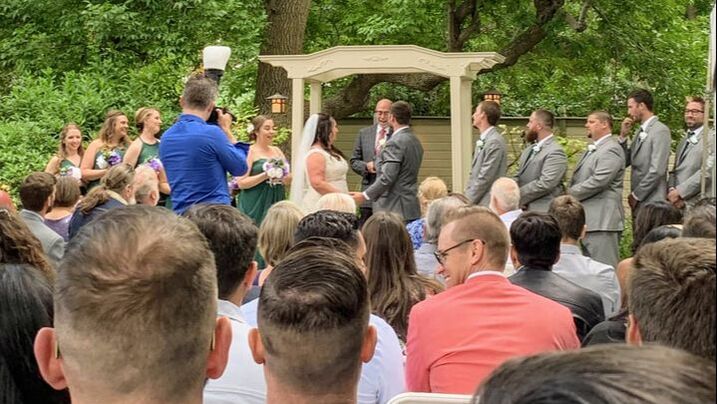 On the last Sunday of June, I stood in the backyard of a Victorian house in Loveland, Colorado, surrounded by 85 smiling, tearing with joy, happy people all dressed up and gathered to celebrate the wedding of two kind, smart, funny, and generous humans incredibly dear to us—one of them being my oldest daughter. I’d convinced myself, as the bride’s mother, that I’d cried all my tears several days before the ceremony when I wrote letters to my daughter and her betrothed. And, walking her down the aisle with my husband, the three of us were all smiles. My smile at moments looked more like a grimace, the eyes-screwed-shot-nearly-maniacal grin of the insanely happy, caught on camera. Everyone laughed at the best man’s speech; and the maid-of-honor, who’s been my daughter’s best friend since the age of three, gave a delightfully funny and sweet toast. Everyone guffawed when my husband, who used to work in high tech, rose and joked about not being able to use PowerPoint—a platform our daughter and her friends employed in high school to bolster their request to make an unchaperoned road trip—and became weepy when he spoke of his mother, who met the groom once when he and my daughter had first started dating, and had predicted their wedding long before they made that decision—as she had with my husband and me. The time came to read the poem I’d written, a blessing for two precious people, and emotion wracked my voice. This moment, this leap of love this saying yes spills from the lips of our beloved bride and groom words shimmering with joy. Together we celebrate the wonder of life in which these two so precious to each of us have found and chosen each other and today have pledged their lives to one another’s keeping. What a gift it is to journey alongside them in a world made sweeter by the kindness and generosity of their love. Cherished ones, may your marriage continue to bring out the best in each of you and each person blessed to know you now and in the years to come. After dinner, I’d learn that I’d made some of the bridesmaids “ugly cry.” Three of the “mom friends” in attendance, who’ve known my daughter almost as long as I have, were brought to tears as well. One couldn’t finish her meal. I know it wasn’t that my words were so exceptional or powerful, it was because love was overflowing, spilling out of us on this “happy, happy day,” to quote one of my daughter’s childhood friends. But on this happy, happy day there was still recognition of our human frailty: photos of the grandparents who’d died were on display next to the guestbook. And at 5,000 feet altitude some guests faced challenges: one with cancer suffered from the lack of oxygen, and even some who were healthy had headaches and trouble breathing, but they were all there; they’d come to celebrate love. One of the young bridesmaids was widowed less than a year ago, and despite her grief she hasn’t lost her riotous sense of humor as her infectious laugh rang throughout the weekend. I’m sure there were quiet moments that brought back bittersweet memories and sadness. I also know, that surrounded by her closest friends, she could be herself exactly as she needed to be in that moment. It wasn’t only the love of the bride and groom for each other that drew the wedding guests together and made the day so rich; it’s the love and care that this bride and groom have for their friends—the way they keep strong relationships over the years, the way they make new friends wherever they go, the generosity and kindness shown to others. We celebrated in a spirit of joy and abundance, and in those days of travel and celebration, I took a break from “the news of this world,” returning to it heartsick over all the ways we separate ourselves from love as a society. Outside of our circle of family and friends, we’re often fearful of others. We treat them in ways we’d never treat those we love, or those we just met at a wedding reception, or sadly even our unruly pets.
I want to hope that the gifts gleaned from my daughter’s wedding overflow into my behavior in the world: that I might see each person as a bride or bridesmaid, groom or groomsman, or the family, friends, parents, and children who love them and extend hospitality. And I want to hope that my small bit of generosity and kindness combined with your small bit of generosity and kindness can make a difference in the life of others—strangers and friends alike. |
I began blogging about "This or Something Better" in 2011 when my husband and I were discerning what came next in our lives, which turned out to be relocating to Puget Sound from our Native California. My older posts can be found here.
Categories
All
Archives
September 2023
Newsletters |
